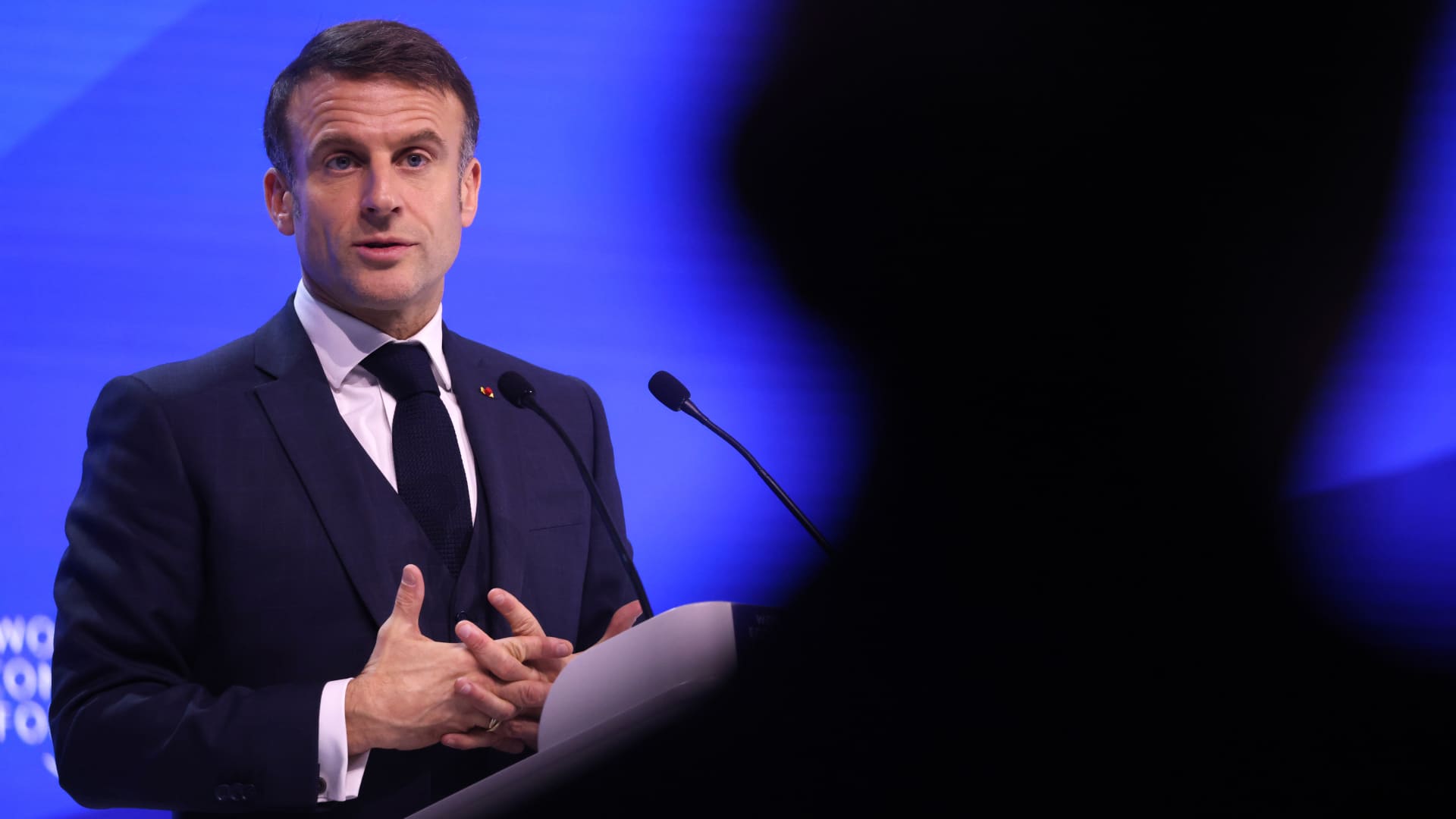Emmanuel Macron, France’s president, delivers a special address on day two of the World Economic Forum in Davos, Switzerland, on Jan. 17, 2024.
Bloomberg | Bloomberg | Getty Images
French President Emmanuel Macron said Wednesday that Europe must be more assertive on the world stage as it confronts an uncertain future for its relations with the U.S.
In a possible nod toward the potential reelection of Donald Trump, Macron said Europe should charge its own path on consequential issues rather than relying too closely on its ally across the Atlantic.
“2024 will be a pivotal year for Europeans. We must prove that we can be more visible, make more efforts, whatever happens in the United States,” he said at the World Economic Forum in Davos, Switzerland, according to a translation.
Central to those issues are the conflicts in Ukraine and the Middle East, as well as the climate transition, Macron said.
It comes as U.S. support for the conflict in Ukraine has been waning, particularly among Republicans — Trump included — who view the ongoing war as too costly and distant from U.S. priorities.
The pushback adds to a sense of Euroskepticism often voiced by Trump during his time in office.
Though absent from Davos this year, Trump’s potential reelection has been a key topic of conversation at the Alpine resort after he won the Iowa caucuses on Monday.
Europe caught in the middle of U.S.-China tensions
Macron also voiced concern about what the outcome of the year-end presidential election could mean for existing tensions between the U.S. and China.
While the U.S. has grown more vocal in its criticism of China and its efforts to cut ties in critical industries, Europe’s approach has been more ambivalent, given how important the Chinese market is for its domestic companies.
“The great risk for Europeans is that they would end up with the wrong agenda,” Macron said.
With that in mind, the president said Europe should focus on becoming more self-sufficient, by boosting regional investment in clean technology, artificial intelligence and semiconductors.
“I always argue for a more sovereign Europe,” he said.
“It doesn’t mean killing your links, killing your partnerships and killing your alliances. But it means not to be overdependent in some sectors of your value chains in some geographies,” he added.







